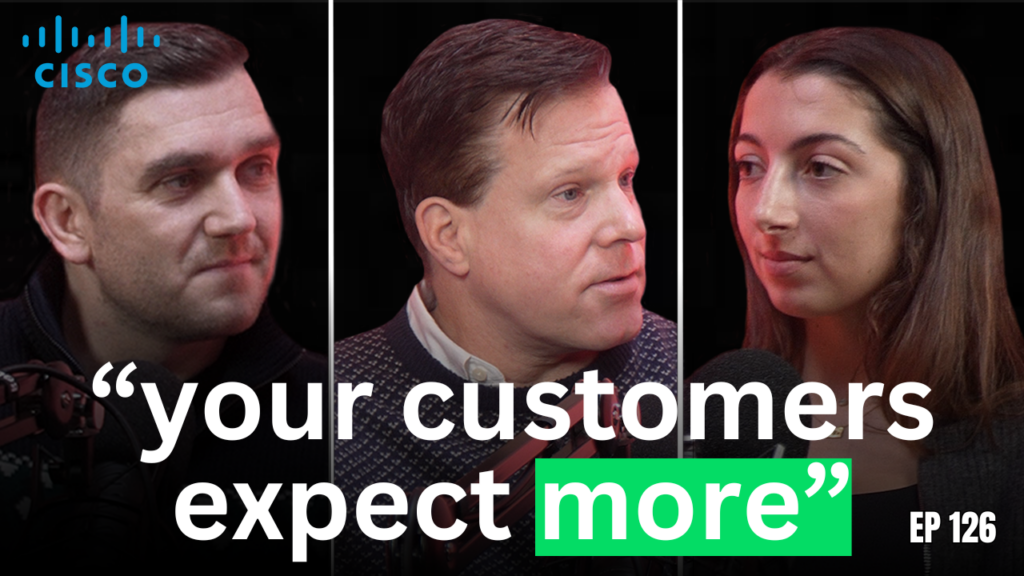In this episode of CX Insider, we sit down with Andrew Carothers, from Cisco, to explore the evolution of digital customer experience and the transformative role of AI. Andrew shares insights on how AI is reshaping CX, from automating processes to redefining business strategies, and why companies need to shift their focus from traditional CX metrics to real business outcomes. With real-world examples—including how Cisco leveraged AI to unlock $1M in recurring revenue—this conversation is packed with valuable takeaways for business leaders, CX professionals, and tech enthusiasts alike.
Episode Summary
.
Why Many Businesses Fail at AI and Technology Procurement
Investing in AI is not enough. Many companies jump into AI adoption because it is a trending technology rather than a well-planned business strategy. According to Andrew, one of the biggest mistakes companies make is adopting AI without a clear problem to solve.
Instead of investing in AI as a quick fix, businesses should follow a structured approach:
- Identify the problem first – AI should be applied to specific business challenges rather than being implemented for the sake of innovation.
- Align AI with revenue goals – Businesses need to ensure AI investments contribute to customer retention, sales, and efficiency.
- Track measurable ROI – Too often, companies fail to assess the long-term impact of AI on customer engagement and profitability.
AI and automation are not magic solutions; they must be implemented strategically to enhance processes rather than just replace them.
The Future of AI in Customer Experience: What to Expect in 2025
As we move toward 2025, AI will continue to reshape CX, but human expertise will remain essential. There is a common fear that AI will replace jobs, but Andrew argues that AI is more likely to change job roles rather than eliminate them.
Looking ahead, businesses will need to prepare for:
- A hybrid AI-human model, where automation handles efficiency while human expertise provides emotional intelligence and strategic decision-making.
- AI-driven personalisation, enabling businesses to deliver highly tailored experiences based on real-time customer data.
- Shifts in consumer expectations, where customers will demand seamless digital interactions while still expecting human support for high-value experiences.
Interestingly, Andrew predicts that in a world where AI dominates customer interactions, there may come a time when human-driven support becomes a premium service. As AI becomes more common, companies that invest in human-led experiences may be able to charge a premium for the personal touch that AI cannot replicate.
AI, CX, and the Billion-Dollar Business Impact
The biggest misconception about customer experience is that it is a cost centre rather than a revenue driver. Many businesses focus on vanity metrics like CSAT scores and NPS ratings, but Andrew highlights why companies should shift their focus to direct business impact.
Cisco’s approach to CX has been data-driven and revenue-focused, proving that investments in digital CX can generate significant returns. Over the past few years, their digital CX initiatives have directly contributed to an additional $1 billion in recurring revenue. This success is based on key strategies such as:
- AI-powered customer insights that help predict customer needs and personalise engagement
- Optimising renewals, upsells, and cross-sells through better digital touchpoints
- Leveraging automation to enhance efficiency without losing the human element
Businesses that still view CX as an optional add-on rather than a core part of revenue strategy are likely to fall behind. The companies that succeed will be the ones that treat CX as a growth engine rather than just another operational function.
.
To find out more about Andrew, check out our full episode – available on all your favourite channels. Now including YouTube!
.
This article summarises podcast episode 126 “Your Customers Expect More” recorded by CX Insider.
Written by Elysia Filaitis

